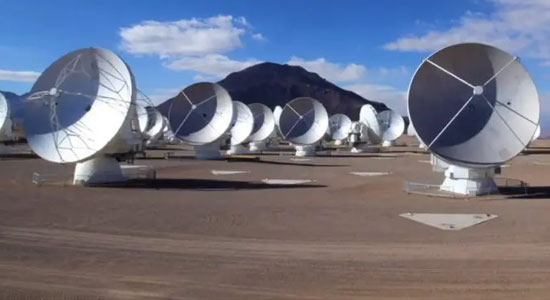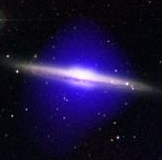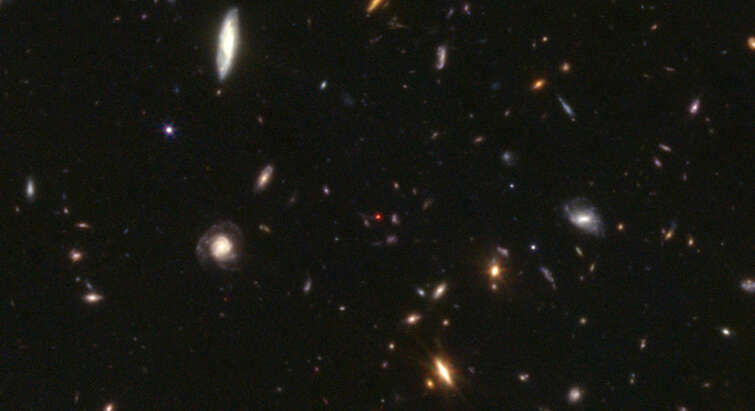
DARK
DARK is an astrophysics research section at the Niels Bohr Institute, University of Copenhagen, focusing on the 'dark Universe': what is dark matter and dark energy, how can we measure the Universe and its expansion, when did galaxies and black holes first form, and what do high energy particles and cosmic explosions tell us about the Universe and the objects within it?
DARK is an astrophysics research section at the Niels Bohr Institute, University of Copenhagen, focusing on the 'dark Universe': what is dark matter and dark energy, how can we measure the Universe and its expansion, when did galaxies and black holes first form, and what do high energy particles and cosmic explosions tell us about the Universe and the objects within it?
DARK offers an international, vibrant, young research environment with very active workshop and visitor programs, and ample opportunity for scientific and social interaction.
DARK is the extra-galactic astrophysics and cosmology research section at the Niels Bohr Institute, and as such is a fully embedded and permanent part of the University. DARK's staff are both internally and externally funded, from more than 10 different sources.
The centre is home to 50+ research staff, PhD and MSc students, with more two thirds of international origin.
Copenhagen is a beautiful, family-friendly city with a large international community, a lively and diverse cultural scene, and a high quality of life. English is widely spoken.
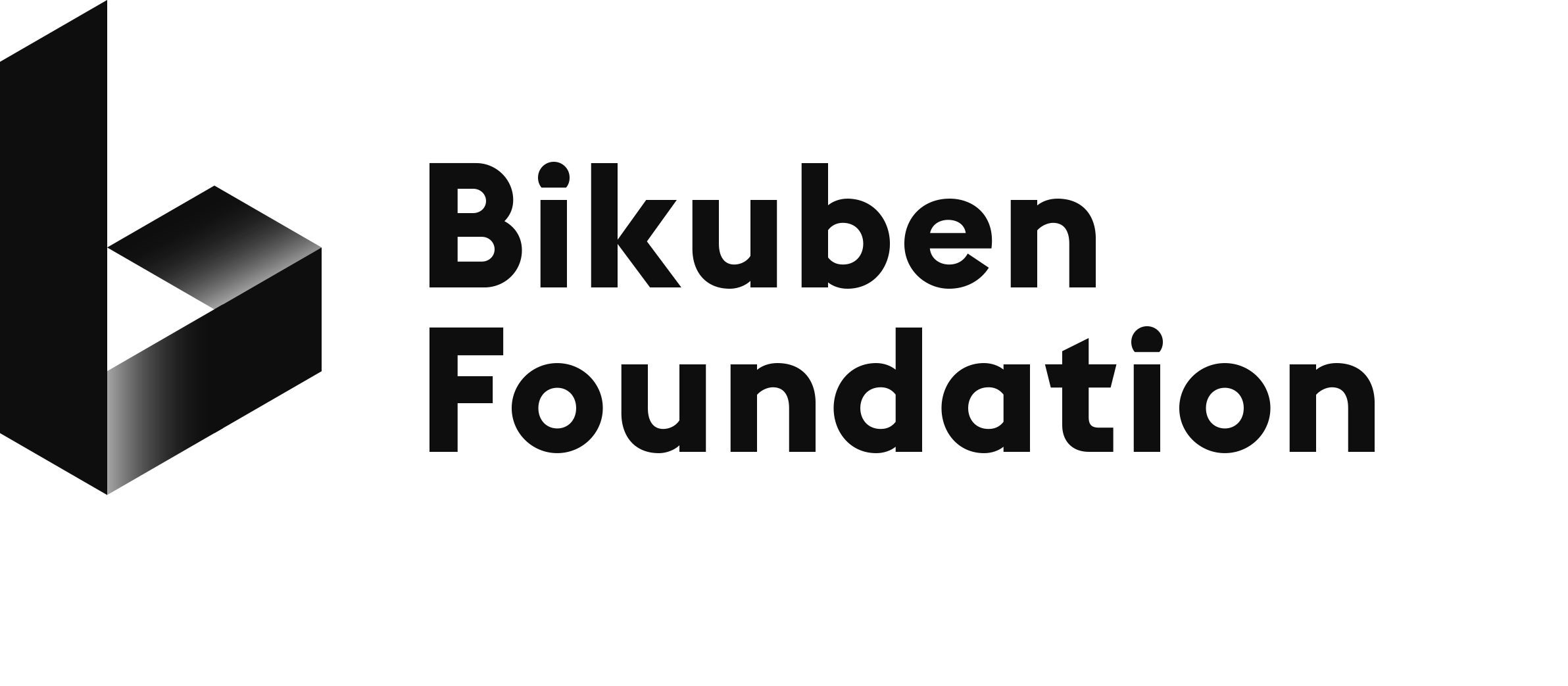
Bikuben Foundation has funded the 'Yet it Moves!' exhibition in collaboration with Copenhagen Contemporary and the 'Act of Gravity' performances in collaboration with the Recoil Performance Group.
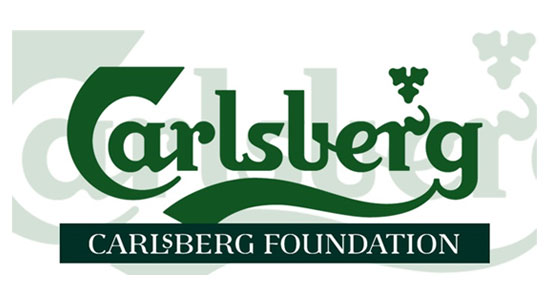
Carlsberg Foundation has funded numerous independent postdoc fellowships at DARK over the years and is currently funding 3 DARK fellows. At present, research on supermassive black holes is supported by a Carlsberg Infrastructure Grant and a Carlsberg Semper Ardens Grant.

The European Research Council ERC supports world-class research. The grants are awarded to excellent researchers at different career levels to help build a team around an original and groundbreaking research idea. The ERC has supported DARK scientists with starting and consolidator grants. At present, the astroparticle and multi messenger astrophysics research is supported by a consolidator grant.

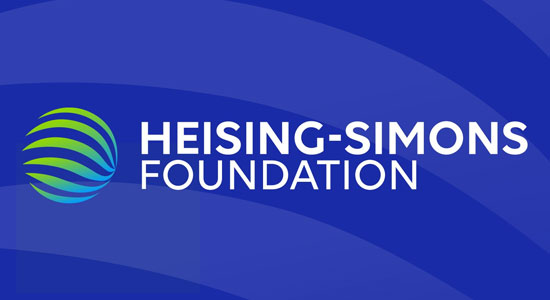
The goal of the Foundation’s astronomy and cosmology grantmaking is to enhance and accelerate new scientific discoveries that illuminate basic understanding of the universe and its celestial objects and processes.
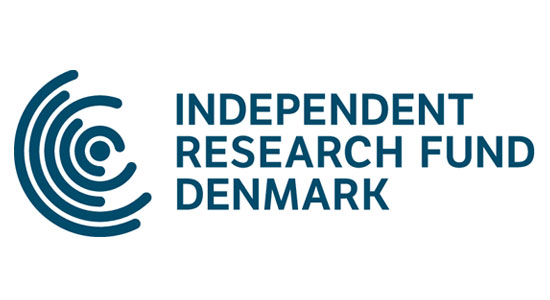
The Independent Research Fund Denmark is supporting research involving students and postdocs at DARK through Project 1 and Project 2 awards to senior scientists. Currently, the research on supermassive black holes are supported by two such grants.

More than 13 DARK scientists have over the years been supported by Marie Curie. Most recently research on supermassive black holes and AGN has benefited, and in 2024-25 research on dynamics of Galactic streamers will be supported by an award.

DARK received a grant from Novo Nordisk to fund the art meets astrophysics project 'Interference.' NNF is also supporting 'Act of Gravity'.

Villum has supported many young researchers at DARK through various grants over the years and has most recently awarded a Villum Young Investigator grant to support research on the study of dark matter using Galaxy streamers that will start in 2024.
Senior faculty (permanent)
| Marianne Vestergaard | Head of Section, Professor |
| Steen H. Hansen | Deputy Head of Institute for Teaching , Professor |
| Jens Hjorth | Professor |
| Irene Tamborra | Professor |
Junior faculty (non-permanent)
| Christa Gall | Associate Professor |
| Radoslaw (Radek) Wojtak | Associate Professor |
| Sarah Pearson | Assistant Professor |
Postdocs
| Adriana Dropulic (per Oct. 1, 2025) | |
| Aprajita Hajela | |
| Cecilia Bacchini | |
| Gregory Walsh | |
| Maya Silverman (per Oct. 1, 2025) | |
| Shashank Shalgar | |
| Thomas Berlok (per 1. september 2025) | |
| William Baker | |
Affiliate Scientists
| Anja von der Linden | Affiliate Assistant Professor (Stony Brook University) |
| Claudio Grillo | Associate Professor |
| Tamara Davis | Professor (U. Queensland) |
| Adriano Agnello | Assistant Professor |
| Enrico Ramirez-Ruiz | Professor |
| Sandra Raimundo | Assistant Professor |
| Kristian Pedersen | Professor |
| Arka Sarangi | Assistant Professor |
| Heidi Korhonen | Associate Professor |
Postdocs - Associated Scientist
| Antonio de Ugarte Postigo | Juan de la Cierva Fellow, Astrophysics Insitute, Andalucia |
| Camilla Juul Hansen | Max Planck Institute for Astronomy, Heidelberg |
| Davide Martizzi | Assistant Professor |
| Hugo Pfister | Postdoctoral researcher |
| Jesús Zavala Franco | Assistant Professor, University of Iceland |
| Katie Auchettl | Assistant Professor |
| Luca Izzo | Postdoctoral researcher |
Emeriti
| Holger Pedersen | Associate Professor Emeritus |
Research Facilitation
| Aleksandra Lesniewska | Research Assistant |
| Arthur Matthew Kadela | Research Assistant |
| Aidan Sedgewick | Postdoc |
PhD Students
| Aman Nadimpalli Raju, Email: aman.raju@nbi.ku.dk |
| Clara Ferreira Cores, Email: clara.cores@nbi.ku.dk |
| Danial Rangavar Langeroodi |
| Diego Farias |
| Jo Verwohlt |
| Julie Kiel Holm, Email: julie.holm@nbi.ku.dk |
| Sirui Wu |
| Vito Tuhtan |
MSc Students
| Freja Amalie Nørby |
| Fiona Hjorth Gammelgaard, Email: kjp806@alumni.ku.dk |
| Ivan Stoyanov Kanev |
| Liam Mads Eichstedlund de Búrca |
| Joseph Romano Adorisio, Email: gfb604@alumni.ku.dk |
| Marcus Albert Mynatt, Email: bqf286@alumni.ku.dk |
Here you find Scientific publications by DARK researchers and Master's theses and Ph.D. theses by DARK students.
- ESO facilities https://www.eso.org/sci/facilities.html, including VLT, ALMA
- ESA https://sci.esa.int/ & NASA facilities, including Hubble Space Telescope, James Webb Space Telescope, Chandra X-ray Observatory, XMM-Newton, Swift, Euclid
- Nordic Optical Telescope (NOT) http://www.not.iac.es/
- Danish 1.5m telescope
- Vera C. Rubin Observatory https://www.lsst.org/
- Greenland Telescope https://greenlandtelescope.dk/
Large collaborations
Computing
- Local DARK cluster: ~2000 cores, 1 Pb storage
- Access to national and international computing resources and storage
- Apple laptops
Large collaborations
- Young Supernova Experiment (YSE) https://yse.ucsc.edu/
- Electromagnetic counterparts of gravitational wave sources at the Very Large Telescope (ENGRAVE) http://www.engrave-eso.org/
- Mirror-slicer Array for Astronomical Transients (MAAT) http://maat.iaa.es/
- LensWatch https://www.lenswatch.org/
- MIRI European Consortium (guaranteed time observations of high-redshift galaxies and SN 1987A)
- STARGATE (European GRB collaboration)
- Legacy Survey for Space and Time (LSST) https://www.lsst.org/
DARK offers Astronomy and Physics teaching and research training on Bachelor, Masters and Ph.D. level.
BSc and MSc students
The faculty at DARK teaches courses and supervises students in Astrophysics at the Niels Bohr Institute, University of Copenhagen. For the Astronomy and Physics programs and general rules of study, please refer to the University of Copenhagen sites:
- Bachelor in Physics, Astrophysics specialty (in Danish)
- Master's in Physics, Astrophysics program (in English)
PhD students
PhD projects are carried out in a dynamic international environment of daily interaction with the supervisors as well as other students, postdocs and staff at DARK. Typically projects involve state-of-the-art observations obtained at international observatories and/or new theoretical developments. Students typically complete one main project and 2 more 3 smaller projects.
In addition to research, PhD students have some teaching or other communications duties at the Niels Bohr Institute and they are required to take courses, which can be done at DARK or the NBI, through research-based independent projects, and by attending summer/winter schools or courses abroad.
- DARK expects students to develop a significant international network of collaborators.
- All of DARK's PhD students work on projects with researchers internationally, and they spend a significant amount of time abroad attending conferences and international schools, as well as for research stays at institutions abroad.
- DARK's research staff are very international, and they bring the benefits of their wide scientific networks to the Centre.
In addition, DARK hosts up to 100 visitors each year who contribute to DARK science in a number of ways; they infuse ideas and stimulate activity, add their expertise to on-going projects, get inspired and develop projects.
Visit the PhD School of Science
DARK also hosts Danish and international students for long- or short term studies and short-period visits.
Visitors within science and art are an integral part of DARK. Visitors contribute to DARK science and art in a number of ways; they infuse ideas and stimulate activity, add their expertise to on-going projects, get inspired and develop projects.
In the past 10 years, DARK has hosted more than than 1000 visits from scientists all over the world, for short or long stays.
Prospective visitors should contact their scientific collaborator at DARK to arrange for the visit.
The prospective visitor's host (a scientific collaborator at DARK) will introduce the visitor to the scientific and non-scientific life at DARK.
Helpful Links for Visitors
General information
Nearby accommodations
Copenhagen Airport
Public transportation
Visit Copenhagen.com
Visit Denmark.com
Copenhagen neighborhoods
Public transportation in Copenhagen
Local/Danish news in English
The Local
Copenhagen Post
Politiken
University of Copenhagen
Niels Bohr Institute
Faculty of Science
Niels Bohr Building, Jagtvej 155B, 2. floor, 2200 København N.
Head:
Marianne Vestergaard, Professor
Phone: +45 35 32 59 09
Email: mvester@nbi.ku.dk
Secretary:
Helena Baungaard-Sørensen
Email: helena.baungaard@nbi.ku.dk
Phone: +45 35 32 70 14
Katrin Hjorth
Email: khjorth@nbi.ku.dk
Phone: +45 35 33 32 49
Staff
Secretary:
Helena Baungaard-Sørensen
Email: Helena.baungaard@nbi.ku.dk
Phone: +45 35 32 70 14
Head:
Marianne Vestergaard, Professor
Phone: +45 35 32 59 09
Email: mvester@nbi.ku.dk







